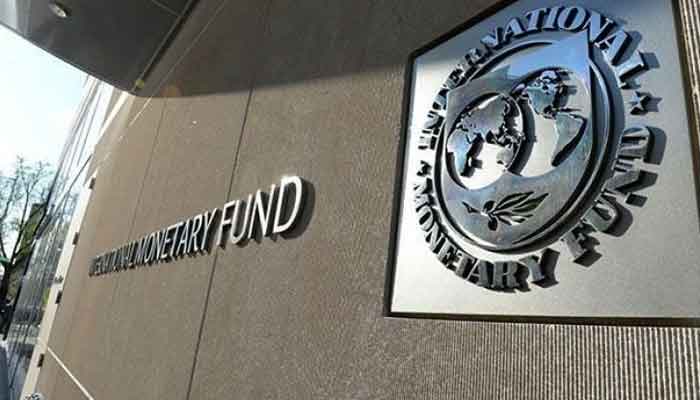Govt may ask IMF to make fiscal adjustments
ISLAMABAD: Pakistani authorities will have to convince the IMF for making fiscal adjustments in line with new emerging realities in their fresh efforts to run $6 billion Extended Fund Facility (EFF) programme without facing any major deadlock.
The IMF review mission is scheduled to visit Islamabad next month from February 3 to 14, 2020 for undertaking second review under $6 billion EFF and holding article IV consultations for Pakistan’s struggling economy.
There are two options on fiscal front either to keep the FBR target of Rs5,238 billion unchanged, the rate of regulatory duty and additional customs duty and other restrictions on imports would be reduced. However, if the imports restrictions continued, the FBR will make request to slash the annual target by Rs200 billion to Rs230 billion, bringing down from Rs5,238 billion to around Rs5,000 billion.
Top official sources confirmed to The News on Monday that Pakistan would make request to the IMF for further slashing the FBR’s revenue target by Rs200 billion to Rs230 billion for the current fiscal year. But there could be possibility that the IMF asks for reducing or abolishing regulatory duty/additional customs duty (RD/ACD) on selected imported items so that the revenue collection through imports could go up. If this path was adopted, there will be no possibility to further revise downward the tax collection target of Rs5,238 billion.
When IMF Chief in Pakistan Teresa Daban Sanchez was contacted for comments on Monday, she replied that the IMF and Pakistani teams are working on the preparation for the second review and 2018 Article IV consultation along the line of dates from February 3 to 14 as mentioned. “A lot of work is still needed and we will know the dates for sure in a few days,” she stated while replying to queries of The News on Monday evening.
There are a couple of options available either to keep revised target of FBR at existing level of Rs5,238 billion and allow government to reduce regulatory duty/additional customs duty (RD/ACD) or abolish in some selected cases so that loose fiscal policy will help to boost imports in gradual manner thus the revenue collection will automatically go up and secondly the FBR’s target to be further revised downward, one top official of government confirmed to The News here on Monday.
Under the IMF prescriptions wrapped in shape of tough conditions comprising tight monetary and fiscal policies and many termed it “one shoe fits all” policy for which the IMF is known for. The State Bank of Pakistan is all set to unveil monetary policy within next few days but there is hardly any possibility for reducing the policy rate that remained at 13.25 percent for last several months. The higher interest rates is also aimed at luring hot money and so far injected amount into treasury bills and PIBS crossed $2.26 billion.
However, renowned economist Atif Mian tweeted on Monday regarding hot money and stated, “There is a little benefit of such inflows in the case of Pakistan, and much potential risk. As already explained, if these short-term liabilities continue to build, they can constrain monetary policy and generate external vulnerability”. Although, the inflation stood at 12.67 percent for December 2019 and it was projected to jack up by crossing mark of 13 percent for January 2020 because of push up in food and energy prices. But the core inflation reduced and now stood at 7.5 percent so there is no need to keep discount rate on much higher side.
-
 King Charles Takes A Major Step To Keep Horrified Prince William Out Of The Loop On Andrew: Insider
King Charles Takes A Major Step To Keep Horrified Prince William Out Of The Loop On Andrew: Insider -
 Taylor Swift Set To Make Biggest Cut From Her Wedding Guest: Blake Lively Or Ryan Reynolds
Taylor Swift Set To Make Biggest Cut From Her Wedding Guest: Blake Lively Or Ryan Reynolds -
 Prince William Meets Saudi Crown Prince Mohammed Bin Salman
Prince William Meets Saudi Crown Prince Mohammed Bin Salman -
 Brooklyn Beckham Brutally Cuts Off Inner Circle Amid Feud With David, Victoria
Brooklyn Beckham Brutally Cuts Off Inner Circle Amid Feud With David, Victoria -
 Kaley Cuoco Reveals Why Fiance Tom Pelphrey Sleeps In Seperate Room
Kaley Cuoco Reveals Why Fiance Tom Pelphrey Sleeps In Seperate Room -
 Ghislaine Maxwell Will Not Answer Congress Questions On Epstein
Ghislaine Maxwell Will Not Answer Congress Questions On Epstein -
 Kensington Palace Announces Prince William's Arrival In Saudi Arabia
Kensington Palace Announces Prince William's Arrival In Saudi Arabia -
 ‘Andrew Crisis Follows King Charles Everywhere Now’
‘Andrew Crisis Follows King Charles Everywhere Now’ -
 Jennifer Aniston Already Decided Her Wedding Dress?
Jennifer Aniston Already Decided Her Wedding Dress? -
 Prince Harry, Meghan’s Hollywood Party Drama Exposes Chaotic PR Strategy
Prince Harry, Meghan’s Hollywood Party Drama Exposes Chaotic PR Strategy -
 Jennifer Garner Reacts To Savannah Guthrie's Video As Search For Nancy Guthrie Continues
Jennifer Garner Reacts To Savannah Guthrie's Video As Search For Nancy Guthrie Continues -
 Bad Bunny Leaves Fans Worried With Major Move After Super Bowl Halftime Show
Bad Bunny Leaves Fans Worried With Major Move After Super Bowl Halftime Show -
 Captain Jason Talks Personal Hardships He Faced Ahead Of 'Below Deck' Season 4
Captain Jason Talks Personal Hardships He Faced Ahead Of 'Below Deck' Season 4 -
 Anti-monarchy Group Reacts To Prince William, Kate Middleton Statement On Epstein Scandal
Anti-monarchy Group Reacts To Prince William, Kate Middleton Statement On Epstein Scandal -
 Andrew 'must' Apologize Not Wider Royal Family For Jeffrey Epstein Links
Andrew 'must' Apologize Not Wider Royal Family For Jeffrey Epstein Links -
 Super Bowl 2026: Why Didn't Epstein Survivors Ad Air On TV?
Super Bowl 2026: Why Didn't Epstein Survivors Ad Air On TV?




